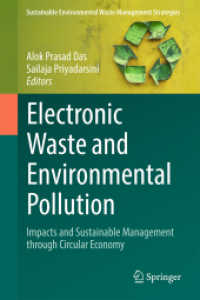Full Description
In these times of rapid change, including a global pandemic, educational leaders need tools and frameworks that can adapt to evolving shifts in real time. What might happen if a leadership framework could make sense of this complexity in ways that are humane, ethical, culturally responsive, and multifaceted? This book examines how a flux leadership mindset and corresponding tools promote the conditions for educational change that uplift stakeholders and generate contextualized data during emergency situations. The educational leaders at the heart of this book employed a flux leadership tool through a process called "rapid-cycle inquiry," which allows for collaborative inquiries to take place in real time to answer tough questions and surface stories that are often silenced in times of sudden change. Featuring narratives of what happened to schools during COVID-19, Flux Leadership introduces a generative framework for agile, responsive, anti-racist, trauma-informed, healing-centered leadership for times of crisis and beyond.Book Features:
Provides a framework and set of real-time strategies for leaders to engage in critical leadership practice and crisis leadership with attention to equity.
Addresses vital school and district-based leadership issues in various contexts, including reflexivity, identity, positionality, racial literacy, brave space leadership, equity-focused professional development, and critical collaboration.
Covers a range of vantage points and intersectional social identities in succinct, accessible, and pragmatic ways.
Creates a new approach for leaders to get at context and drive homegrown metrics that speak back to and challenge top-down metrics in schools and districts.
Contents
Contents
Foreword Christina M. Grant vii
Acknowledgments
xi
1. Storying the Gaps: Transforming Schools Through Story-Based Inquiry 1
Sharon M. Ravitch and Chloe Alexandra Kannan
2. Flux Pedagogy 20
Sharon M. Ravitch and Chloe Alexandra Kannan
3. Flux Leadership 54
Sharon M. Ravitch and Chloe Alexandra Kannan
4. Hard Pivot: Compulsory Crisis Leadership Emerges From a Space of Doubt 99
Andrew Phillips, Kelly Grimmett, and Elizabeth Fernandez-Vina
5. "And How Are the Children?" 117
Rahshene Davis, Amelia Coleman-Brown, and Michael Farrell
6. Real Talk: Teaching and Leading While BIPOC 127
Deirdre Johnson Burel, Felicia Owo-Grant, and Michael Tapscott
7. Systems of Emotional Support for Educators in Crisis 148
Carla Haith and Jeannine Minort-Kale
8. Listening Leadership: The Student Voices Project 161
Manuela Adsuar-Pizzi
9. Global Engagement, Perspective Sharing, and Future Seeing in and Beyond Global Crisis 173
Drew Cortese, Kiet Hoang, and Clare Sisisky
10. Teaching and Leading During COVID-19: Lessons from Lived Experiences 189
Karen D'Avino, Muronji C. Inman-McCraw, and Curtis A. Palmore
11. Crisis Leader Literacies in K-12 Independent Schools During COVID-19 206
Jessica Flaxman, Christopher J. Hancock, and David Weiner
12. Rituals, Routines, and Relationships: High School Athletes and Coaches in Flux 222
Steve A. Brown
13. Story-Based Frameworks and Practices for Educational Change 232
Sharon M. Ravitch and Chloe Alexandra Kannan
Appendix A: Rapid-Cycle Inquiry Framing and Process Template 241
Appendix B: Rapid-Cycle Inquiry Design Process Template 244
Appendix C: Team Selection Considerations for Rapid-Cycle Inquiry 246
Appendix D: Existing Educational Data in Schools 248
Appendix E: Radical Student Check-Ins as a Form of Radical Self-Care 250
William N. Thomas, IV
About the Contributors 257
Index 264







